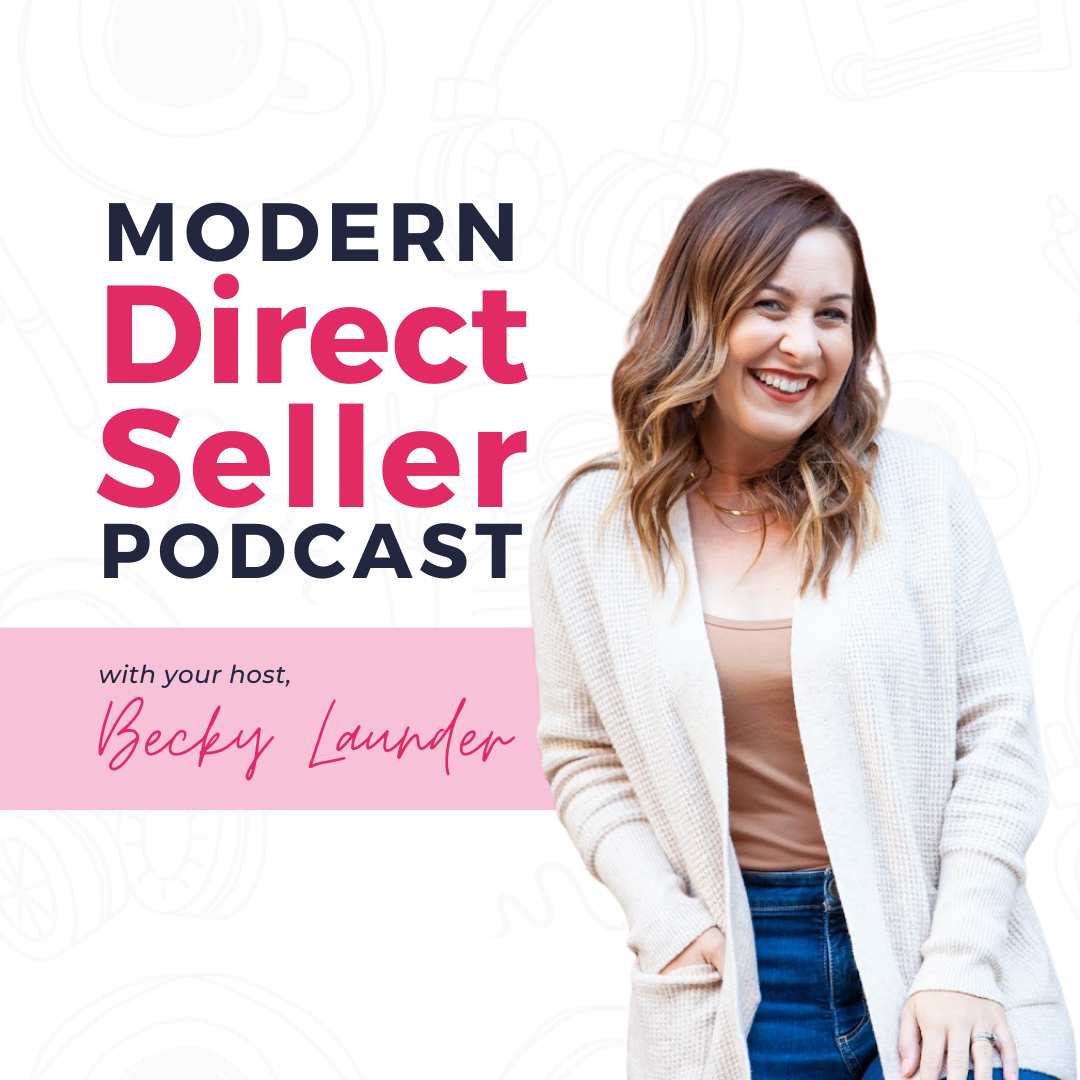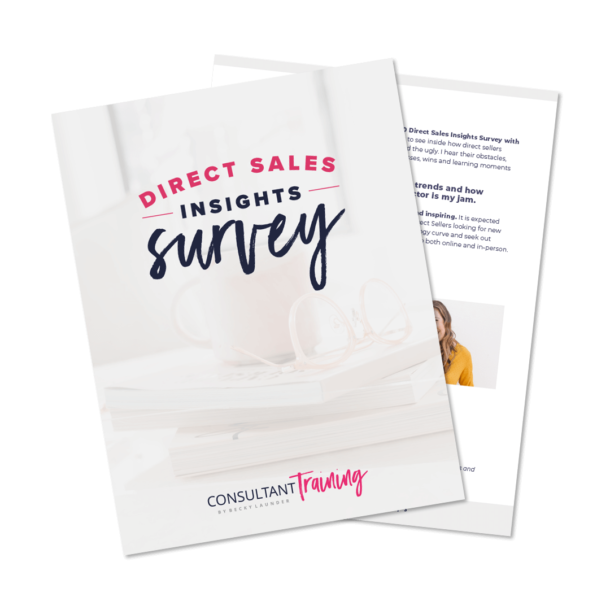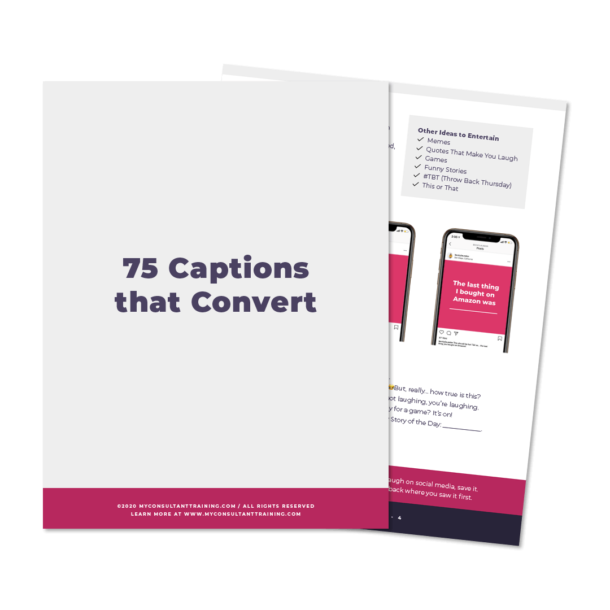In this episode of the Modern Direct Seller Podcast, the spotlight is on one of the most common (and uncomfortable) parts of the sales process: objections. We break down the most common objections direct sellers face, whether it’s about pricing, product fit, time constraints, or confidence in the business, and offer practical ways to respond without losing momentum. Get ready to walk away with strategies to keep conversations moving forward, without feeling spammy, salesy, or discouraged by the word “NO.”
Time based notes:
- 0:56 – Normalizing objections in direct sales
- 5:25 – Sales stats that reframe rejection
- 7:03 – Customizing objection responses
- 8:05 – Responding to “It’s too expensive”
- 12:07 – Responding to “Not sure it’s for me” and similar pushback
- 17:46 – Objections around the business opportunity
- 18:30 – Responding to “I don’t have time”
- 21:48 – Responding to “I’m not a salesperson”
- 23:09 – Responding to “I don’t have the budget”
- 26:27 – Responding to “I won’t be good at this” + confidence coaching
- 28:33 – Why tracking your ‘yes rate’ matters
- 30:08 – Create your objection cheat sheet
Why Objections Aren’t the End of the Conversation
Hearing “no” never feels great. But in direct sales, it’s part of the process. Whether someone passes on your product or hesitates to join your team, it doesn’t mean you’ve failed. In fact, if you’re not hearing objections regularly, it probably means you’re not having enough conversations.
The key is not to take it personally. Objections are often just signals that tell you either the person isn’t ready, doesn’t know enough, or isn’t seeing the value yet.
Most Sales Don’t Happen on the First Try
Only 2% of sales happen on the first contact. That means the other 98%? They require multiple follow-ups, education, and relationship-building.
People often need to hear about a product or opportunity 7-10 times (sometimes more) before taking action. And 80% of sales happen after five or more follow-ups. If you’re giving up after one or two, you’re leaving potential results on the table.
Price Pushback and Product Doubts
When someone says, “It’s too expensive,” what they usually mean is, “I don’t fully understand the value.” That’s your cue to slow down, break things down, and explain what’s included, how long it lasts, or how it compares to what they already use.
You might also want to offer ways to collaborate, like hosting an event or using a referral link, to help them save while you grow your reach.
For objections like “I already have something like that” or “I’m not sure it’s for me,” ask open-ended questions. Invite them to try a sample, share a short explainer, or walk through how others are using it. Often, hesitation just means they don’t have enough context yet.
The Most Common Business Opportunity Objections
Objections around the business opportunity tend to sound more personal, but they usually stem from one of four concerns:
- Time: People are busy. Instead of trying to convince someone they do have time, ask: “What would make it worth it for you?” This helps align their time investment with their desired results.
- Sales Skills: “I’m not a salesperson” is really about the fear of being pushy, awkward, or judged. You can say: “I felt the same way. I just started sharing what I loved and I’ve learned as I went.”
- Budget: If startup costs are holding someone back, reframe it as an investment with a return. Walk them through how others earn back their initial spend. And if it’s truly not the right time, that’s okay! Simply offer to check in down the road.
- Confidence: “I don’t think I’d be good at this” usually means they can’t picture themselves succeeding. Reassure them: “Nobody starts as an expert. If you’re coachable and consistent, you’ll get there.”
Track, Learn, Improve
Want to get better at navigating objections? Track your conversations. Notice what people are saying, how you’re responding, and how often those conversations turn into a yes. Your “yes rate” (e.g., 2 out of 10) gives you a realistic baseline and helps you improve over time.
Your Own Objection Cheat Sheet
You don’t have to come up with the perfect response on the spot. You can create a cheat sheet with the most common objections you hear and your go-to replies. Keep it on your phone or desktop so it’s ready when you need it.
And if you’re stuck? Use ChatGPT to brainstorm some authentic, non-salesy language to guide you.
Keep the Conversation Going
Objections don’t mean you’re doing something wrong. They just mean someone needs more clarity, more context, or more time. Stay consistent. Stay curious. And know that every “not yet” gets you closer to a “yes.”
Show sponsored by CinchShare: The number one most trusted social media scheduling tool for direct sellers. Start your 60 day trial today with coupon code KEYBOARD60 and spend less time posting and more time socializing!








0 Comments